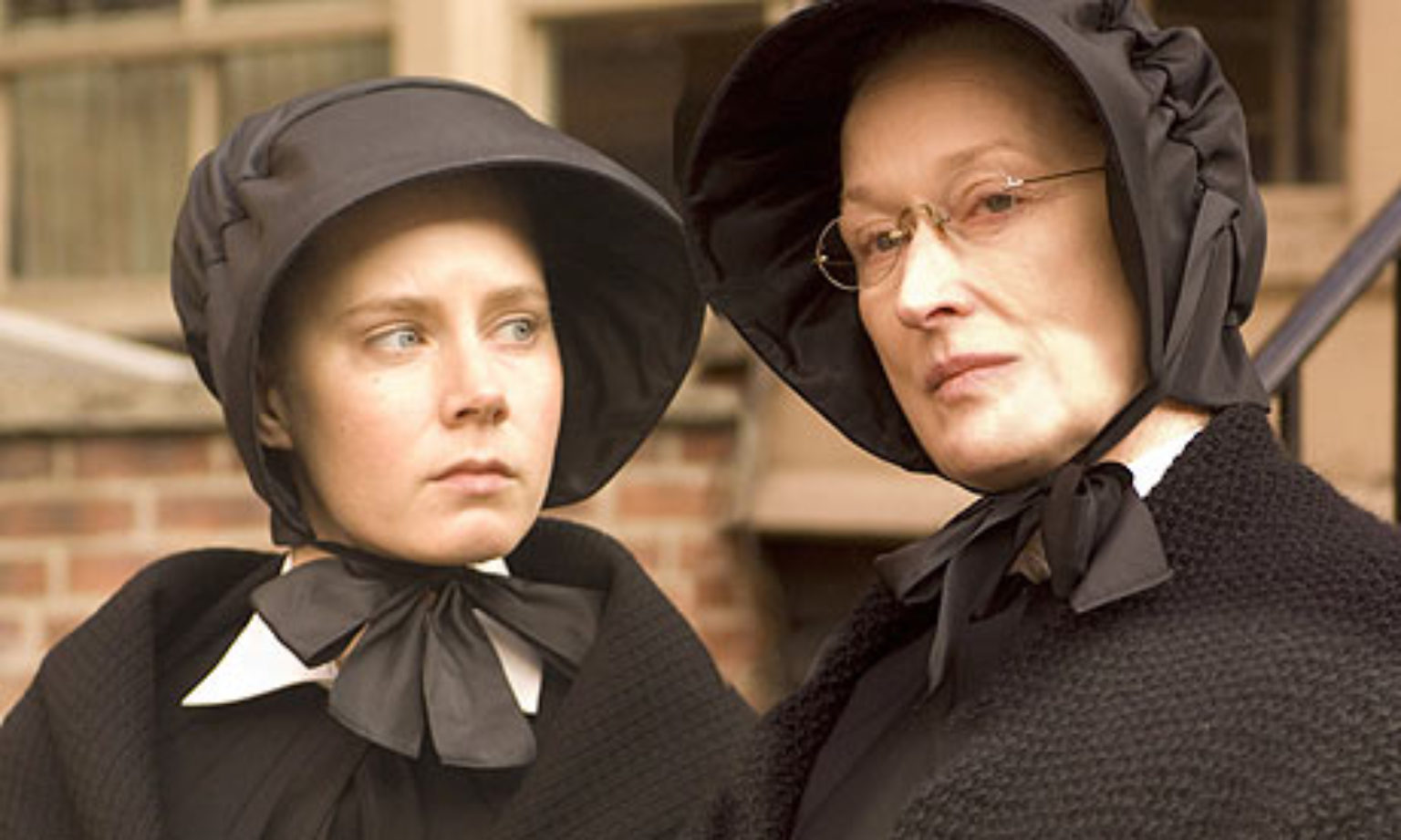
Sister Aloysius does analyze Donald’s relationship with Father Flynn, and its context, to some degree, but whether she is caring for him at all or simply uses him as an excuse to further her own ends is debatable, as previously mentioned. Even if one were to affirm that she is attempting to do what is best for Donald she does not necessarily feel an inclination, which is just as important as a sense of duty in care ethics.
Additionally, if Father Flynn is not predatory then she is doing Donald tremendous harm, by cutting him off from one of his only meaningful relationships. In this way, one can argue that Father Flynn is doing a better job being the one-caring than Sister Aloysius, assuming the nature of their relationship is innocent, because rather than punishing Donald for drinking the altar wine, embarrassing, or humiliating him, he pays special attention to him and affirms his sense of self-worth. The one caring relationship for Donald around which there is no ambiguity or extenuating circumstances is his relationship with his Sister James, but unfortunately, she has extraordinarily little power to protect him or effect meaningful change.
During their conversation, Donald’s mother says that Sister Aloysius does not know enough about the world and presumably caring for Donald specifically because of her emotional disposition and isolated lifestyle. Essentially, in context to care ethics there are four possible versions playing out, with the added variables of whether she intended to carry out the blackmail in any situation, and if she made it her mission to carry Donald through school:1. a version where Father Flynn was a predator, and Sister Aloysius possessed both inclination and duty, 2. a version where Father Flynn was a predator, but Sister Aloysius did not possess both of those things, 3. a version where Father Flynn was not a predator, but Sister Aloysius did possess both inclination and duty, and 4. a version in which Sister Aloysius was not correcting her certainty and did not possess both inclination and duty.
In three out of four of those scenarios, she would have been either lacking rightness of judgment or possessing care ethics, and the two most essential components for ethical care. Even in the most positive of those scenarios in which she possessed both traits, and Father Flynn was predatory, stretching even more and assuming her motivations were pure, and she got Donald through school and would not have gone through with the blackmail, Donald would still have been significantly emotionally scarred. It also seems pertinent here that Donald is not only Black, but is potentially implied to be gay, and in a situation in which Father Flynn was not predatory, he lost his only role model in all respects, but in that one in particular as well.If Donald had to go back to public school, or his father found out, the consequences could be deadly for him and his mother. I am going to step out of the semi formal conventions of this essay to offer a brief personal reflection to close:
One of the very first lines spoken in the film is when Father Flynn says: “What do you do when you’re not sure?” When faced with ethical decisions, many humans have asked this question. I think the best we can hope for, amid our doubt, is a hand of comfort and care and / or duty from a loved one, telling us that [when we are lost, we are not alone.]
